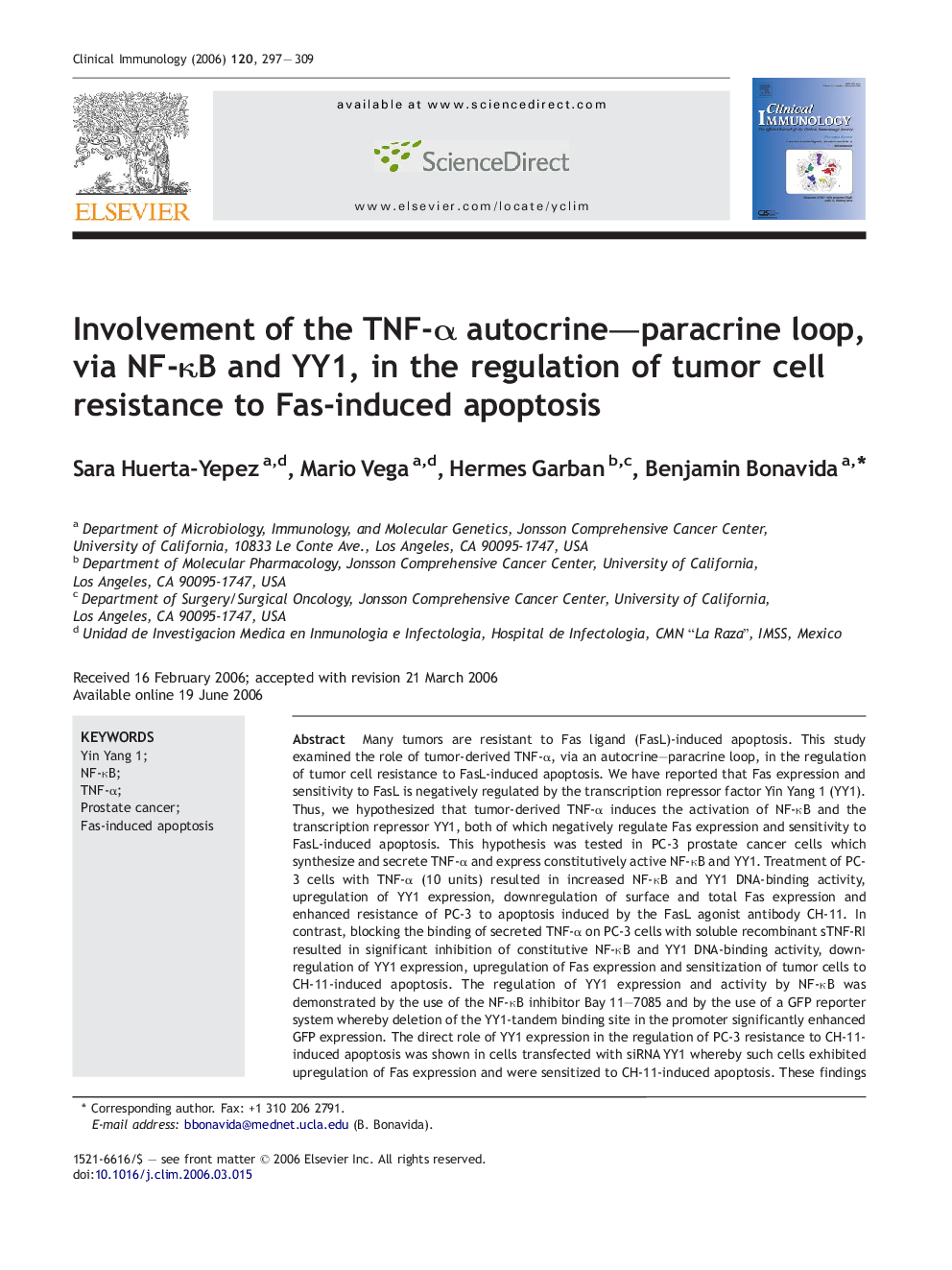| Article ID | Journal | Published Year | Pages | File Type |
|---|---|---|---|---|
| 3258680 | Clinical Immunology | 2006 | 13 Pages |
Many tumors are resistant to Fas ligand (FasL)-induced apoptosis. This study examined the role of tumor-derived TNF-α, via an autocrine/paracrine loop, in the regulation of tumor-cell resistance to FasL-induced apoptosis. We have reported that Fas expression and sensitivity to FasL is negatively regulated by the transcription repressor factor Yin Yang 1 (YY1). Thus, we hypothesized that tumor-derived TNF-α induces the activation of NF-κB and the transcription repressor YY1, both of which negatively regulate Fas expression and sensitivity to FasL-induced apoptosis. This hypothesis was tested in PC-3 prostate cancer cells which synthesize and secrete TNF-α and express constitutively active NF-κB and YY1. Treatment of PC-3 cells with TNF-α (10 units) resulted in increased NF-κB and YY1 DNA-binding activity, upregulation of YY1 expression, downregulation of surface and total Fas expression and enhanced resistance of PC-3 to apoptosis induced by the FasL agonist antibody CH-11. In contrast, blocking the binding of secreted TNF-α on PC-3 cells with soluble recombinant sTNF-RI resulted in significant inhibition of constitutive NF-κB and YY1 DNA-binding activity, downregulation of YY1 expression, upregulation of Fas expression and sensitization of tumor cells to CH-11-induced apoptosis. The regulation of YY1 expression and activity by NF-κB was demonstrated by the use of the NF-κB inhibitor Bay 11-7085 and by the use of a GFP reporter system whereby deletion of the YY1-tandem binding site in the promoter significantly enhanced GFP expression. The direct role of YY1 expression in the regulation of PC-3 resistance to CH-11-induced apoptosis was shown in cells transfected with siRNA YY1 whereby such cells exhibited upregulation of Fas expression and were sensitized to CH-11-induced apoptosis. These findings demonstrate that the TNF-α autocrine–paracrine loop is involved in the constitutive activation of the transcription factors NF-κB and YY1 in the tumor cells and this loop leads to inhibition of Fas expression and resistance to FasL-induced apoptosis. Further, these findings identify new targets such as TNF-α, NF-κB and YY1, whose inhibition can reverse tumor cell resistance to FasL-mediated apoptosis.
